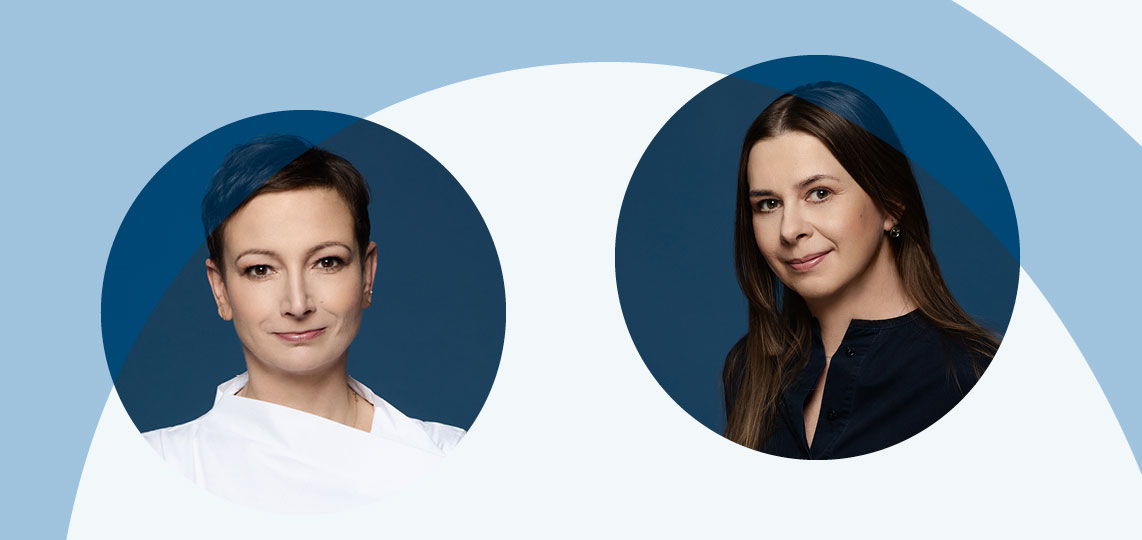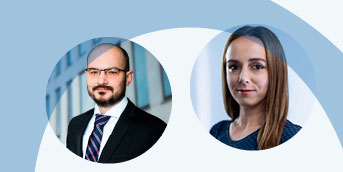
UNIQA & AXA: Communication in a Merger
Read interview



Communication in a merger is the glue that holds everything together and forges success for newly combined organizations.
We talked to two experts who have navigated these uncharted waters: Silvia Vlasková, Director of Brand and Marketing and Oskar Sekereš, Director of Communication at UNIQA Czech Republic and Slovakia.

Oskar: The merger of the two brands was arranged on 7 February 2020. AXA Group agreed with UNIQA Insurance Group that they would take over the shares and become owners of AXA in Slovakia, the Czech Republic and Poland. This was followed by necessary steps, such as the approval by the European Commission and by local regulators and national banks. These approvals were crucial and binding for us. After that we were given deadlines that we had to keep. So it was not possible to wait until the end of the pandemic. The merger itself happened in two phases – at the beginning of 2021 we renamed the pension and investment companies, and on 31 August 2021 the insurance companies were united. By this step, the transaction was officially and legally completed. Yes, it wasn't easy, but the fact that we were not able to meet face to face in a meeting room did not hinder the merger in any way.
Silvia: We are not the first financial institution undergoing a merger. However, this time it was different as it was done remotely because of the pandemic. Handling the merger processes of the insurance and pension companies into our entities online was a big challenge. For example, I've met Oskar in person just a few times, but we met online like 5 times a day (laughs). And it's not only about the human dimension. The most important thing was that all processes, including IT solutions, had to be integrated. And all this had to be done remotely, without actually meeting in person. It was technologically and mentally demanding.
The most important thing was that all processes, including IT solutions, had to be integrated. And all this had to be done remotely, without actually meeting in person. It was technologically and mentally demanding.
Oskar: Internal communication during the merger was as important as external communication. Naturally, people were worried whether their job would be preserved or whether they'd lose it. These worries were multiplied by the pandemic. The fact that we didn't see one another didn't help. It was harder to connect people and teams when everyone was working from home. From the very beginning, our strategy was built upon transparency and providing regular information to employees and colleagues. Everybody knew what was happening at any given moment, which phase of the process we were in and what had been done. This worked pretty well.
Oskar: We used different channels, primarily standard ones like e-mails and the intranet. We also held regular online meetings for all employees in the form of small conferences where everyone was given complete and detailed information about the merger. In parallel, we launched an ambassador project. We selected more than 50 people from UNIQA and AXA whom we appointed as ambassadors of change. The ambassadors are our colleagues that are active and have a natural authority among their co-workers. The team meets twice a month and deals with different problems and issues that come from different people.
Oskar: The thing is that they are not directors or managers and they were selected regardless of how long they had been with us. Using qualitative methods, we have selected people with potential to share information about the change in a natural way within their circle. These are people that know how to pass on information from top management, but they can also collect questions and reactions from employees.
Silvia: In the first wave, we selected people who could handle change relatively well. Gradually, they were joined by people who were actively interested in the process and wanted to contribute to it.
Oskar: The standard period is two to four years, but the first meetings with ambassadors showed that the two companies were similar not only from the outside, but also from the inside. From the very beginning, the ambassadors talked in a similar way, our cultures are very close. This is why I believe it will take less than four years.
Silvia: When we first talked with the ambassadors, we realized that they were very similar. They agreed that this could also be used in external communication. We will therefore use them also in further phases.
Silvia: The first thing we did was a survey focused on what we share and where we differ. And to our surprise, we found a lot of overlaps. In comparison to the rest of the market, both brands appeal to more university educated people, stronger social groups and people from big cities. We also realized that UNIQA is more focused on specific regions, while exAXA's presence was more balanced across regions. This is one feature of exAXA that we definitely want to preserve. And this brings me to one very important thing - this was not the case when a giant company devoured another brand. The two brands were equally powerful before the merger. For us it is crucial that the "new" UNIQA brand does not compromise the image of neither of the two companies that were involved in the process. Simply put, we want to take the best of the two brands.
Silvia: They are really very similar. I remember a meeting of the UNIQA brand in Vienna where we assessed the UNIQA brand and its functioning in 10 years. We also looked into brand positioning of AXA. And although back then we didn't know that UNIQA might be interested in buying AXA, we already said to ourselves: Wow, AXA is curiously similar to us.
Oskar: A long-term focus on clients. We adapt all sales and after sales processes, all communication and services to the clients. This distinguishes us from our competitors. We also share the effort to simplify things. Then there are values like integrity, delivering on our promises to clients. And when we deliver, we are happy and proud to talk about it. Our mission is to be our clients' partner for life.
Silvia: When Oskar speaks about integrity, it also includes transparency. To openly say what we will and won't do. The basic principle of our work is 'client first'. We also want to be inspirational coaches, which means we don't want to tell our clients what they should do, but rather tell them openly what their options are, learn about their situation and help them make a choice. We don't wish to command people – we want to help them find their own path.
Read interview
Read interview
Read interview

